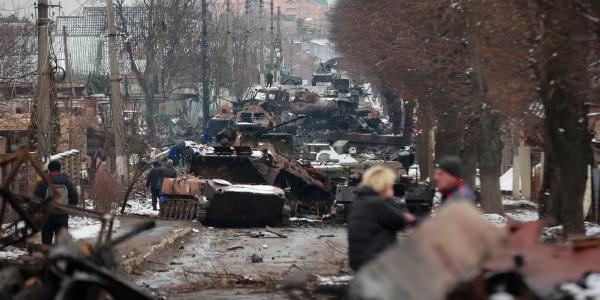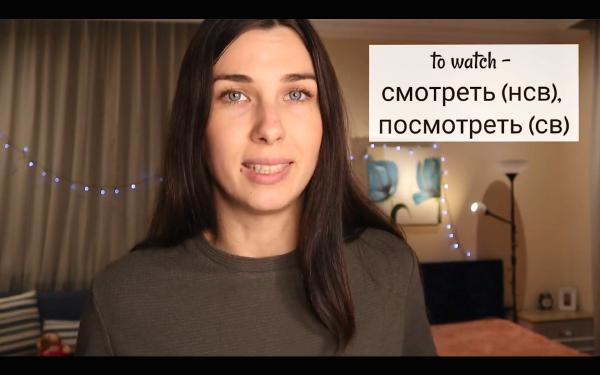SIXTH NOUN: LOCATIVE/PREPOSITIONAL
The sixth noun, in Russian предложный падеж, is for most students the first one they learn. The reason is simple: the sixth grammatical case itself is.
Here (only) about usage; conjugations in a subsequent section, though you will inevitably encounter them below.
Location
The main use of the sixth noun is to designate a place - the name “locative” already indicates it, most other uses flow from it. In the park (парк), on the street (улица), in Moscow (Москва): в парке, на улице, в Москве. This also changes place names that are not Russian at all. In Amsterdam: в Амстердаме. They may not like that in Amsterdam, but that’s how it is.
‘Place’ is not just understood geographically. In class (урок), in the clouds (облака), in panic (паника): на уроке, в облаках, в панике.
Prepositional Case: Introduction
(Amazing Russian, 2020, 18 m)
Amazing Olga has a whole playlist prepositional case.
See also
- Ппредложный падеж. Где? (Native Russian, 2022, 11 m)
- Prepositional case in Russian: where something or somebody is located (Russian in 7 Minutes, 2021, 7 m)
- Где вы? Предложный падеж. Prepositional case in Russian (Maria Petrova, 2020, 18 m)
- Talking about location: Russian Prepositional Case (Easy Russian, 2020, 5 m)
- Prepositional Case for Location: Where Are You? Где ты (Amazing Russian, 2016, 4 m)
In and on (в and на)
The sixth case is the only one that never occurs without a preposition. Hence предложный падеж, hence prepositional case (предлог and preposition both mean preposition). Usually in or on, in Russian в and на. В in the case of a bounded whole or enclosed space, на in other cases. Therefore в офисе (in the office), and на работе (at work). На заборах (see image): on fences. Пишут правду: does one write the truth.
Both prepositions can also indicate direction. Then no sixth case but the fourth. В Америку: to America. На работу: to work.
Russian Cases – Usage of the Prepositional
(Russian grammar, 2013, 1 m)
De в wordt во wanneer de uitspraak (of uitspreekbaarheid) erom vraagt, Zoals in
in Frankrijk (Франция):во Франции.
in de zin (фраза): во фразе.
in alles (все): во всех.
in een droom/slaap (сон): во сне.
Предлоги В, ВО и НА. Предложный падеж || Падежи и предлоги (О русском по-русски, 2019, 11 m)
See also
- В or НА? Which Preposition & When to use? (Russian with Nastya, 2023, 20 m)
- Prepositions В, ВО, НА | Russian prepositions (Prepositional case) (Diana Lipsky, 2022, 6 m)
- Предлоги “В” и “НА” (Russian for Foreigners, 2022, 9 m)
- Грамматика русского языка: предлог ВО (русский с носителем, 2019, 5 m)
- The most important Russian Prepositions: В, НА, О (in, on, about) with Prepositional Case (LRW Alfia, 2019, 17 m)
- Предлоги “В” и “НА” в русском языке (русский с носителем, 2018, 14 m)
- Prepositional Case with “in” and “at” (College Russian, 2015, 20 m)
- Russian prepositions 2 – в, на – in, at, on – Russian vocabulary (Antonia Romaker, 2014, 6 m); van hetzelfde kanaal is Russian prepositions: в, на – in, at, on, on the surface of – русские предлоги (2014, 6 m)
- Russian Prepositions: в and на (Russian grammar, 2013, 3 m)
About (о, об, обо)
Sixth noun also to say “about,” usually with the preposition o (to, about).
In sentences like:
He thinks about her/him: он думает о ней/нём.
I’m talking about it (lit.: I’m talking about it): я говорю об этом.
We are thinking about it: мы думаем об этом.
I dream about you: я мечтаю о тебе.
Prepositional. Part 1. About whom? About what? | Russian cases
(Diana Lipsky, 2021, 13 m)
The о becomes об when the following word begins with one of the letters а, о, и, у, э.
The об becomes a обо in, for example, обо мне (about me), as in:
что ты знаешь обо мне - what do you know about/about me.
Also a обо in: обо всём (about everything) and обо всех (about everyone). And for что, что-то, что-либо, что-нибудь, всё, весь, всякий, многий.
Instead of о/об/обо, про is also used (especially in colloquial language) to say “about. After that про follows not the sixth but the fourth case.
The fourth case can also follow об. It then means ‘against’ or ‘at’ and expresses direction. As in: ударить об стену (hitting the wall, hitting the wall).
Russian prepositions О and ПРО (Difference)
(Live Russian, 2019, 7 m)
See also
- Предложный падеж (О КОМ? О ЧЁМ?) (Лаборатория ИМО, 2020, 6 m)
- Basic Russian 1: Prepositional Case With the Preposition ABOUT (О/ОБ) (Amazing Russian, 2020, 16 m)
- Russian prepositions о, об, обо – русские предлоги (Antonia Romaker, 2019, 4 m)
- ‘ABOUT’ in Russian | Compare ’n Contrast (Be Fluent in Russian, 2018, 4 m)
- Учим предлоги в русском: о, об, про (русский с носителем, 2017, 6 m)
- Prepositional Case of Personal Pronouns: О КОМ? О ЧЁМ? (Amazing Russian, 2017, 12 m)
Playing and playing
We say: she plays the guitar, he plays the piano. Or: on the guitar, on the piano. In Russian, this needs a preposition in both cases. На (on) with the verb играть. Она играет на гитаре, он играет на пианино.
Is it about playing with toys, a game or sports, играть with в plus fourth noun: играть в футбол (playing soccer), играть в шахматы (playing chess), играть в карты (playing cards), играть в игру (playing a game). In the accusative, only the feminine игра, changes to **игр
- ИГРАТЬ – to PLAY – Conjugation, Common Phrases (Real Russian Club, 2023, 2 m)
- ИГРАТЬ - TO PLAY (sports, games, musical instruments) (Russian with Nastya, 2023, 19 m)
- РКИ Играть в/на Тест Russian Играть в/на Test (Russian for foreigners, 2023, 2 m)
Clothes
Those who wear clothes are in those clothes. Sixth noun thus.
In a suit (suit): in a suit.
In skirt (skirt): in skirt.
In red T-shirt (red T-shirt): in a red T-shirt.
In black shirt (black shirt): in a black shirt.
Prepositional Case: What Clothes Someone Has on: Кто в чём?
(Amazing Russian, 2017, 9 m)
Period.
Sixth noun for a placement in time.
This week (week): this week.
Next month (month): next month.
Last year (year): last year.
See
- Months. Expressing “In a Certain Month” (Amazing Russian, 2024, 6 m)
- Prepositional in WHEN Constructions (Intermediate Russian, 2019, 1 m)
Transport
Sixth noun also to indicate how to get to location.
With/on a bicycle (велосипед): на велосипеде.
By car (машина): на машине.
By train (поезд): на поезде.
By plane (самолёт): на самолёте.
You can also express “by plane” (in the sense of: by means of, per) with one word, in the fifth noun: самолётом.
See
- Предложный падеж. НА ЧËМ? - транспорт (Native Russian, 2023, 8 m)
- Prepositional. Part 3. TRANSPORT | Russian cases (Diana Lipsky, 2021, 5 m)
MORE
Watch
- The sixth noun in Russian - Locative (Russian with Tamara, 2024, 3 m)
- The Prepositional Case | Learn Russian Grammar (Russian Readers, 2023, 9 m)
- Russian cases – PREPOSITIONAL (Real Russian Club, 2019, 44 m)
- Предложный падеж (Znaika TV, 2017, 4 m)
- Russian Prepositional Case (R for Russian, 2017, 10 m); deel 2, deel 3, deel 4
- Russian grammar lessons: Prepositional Case (Russian From the Heart, 2017, 8 m), deel 2, deel 3
- Russian Prepositional case – предложный падеж в русском языке (Antonia Romaker, 2016, 13 m)
Seeing/Reading
- A Complete Guide to the Prepositional Case in Russian (NewGirl on the Bloc, 2022)
- A Straightforward Guide To The Russian Prepositional Case (Olly Richards)
- Locatief – de zesde naamval (Russischegrammatica.nl)
- Prepositions Governing the Prepositional Case (Alpha Dictionary)
- Prepositional Case in Russian (Russian Enthusiast)
- Prepositional case in Russian (Pa-Russki)
- Russian/Grammar/Prepositional case (Wikibooks)
- The Prepositional Case in Russian: Usage and Examples (ThoughtCo., 2019)
- The Prepositional Case in Russian (Mighty Languages)
More








